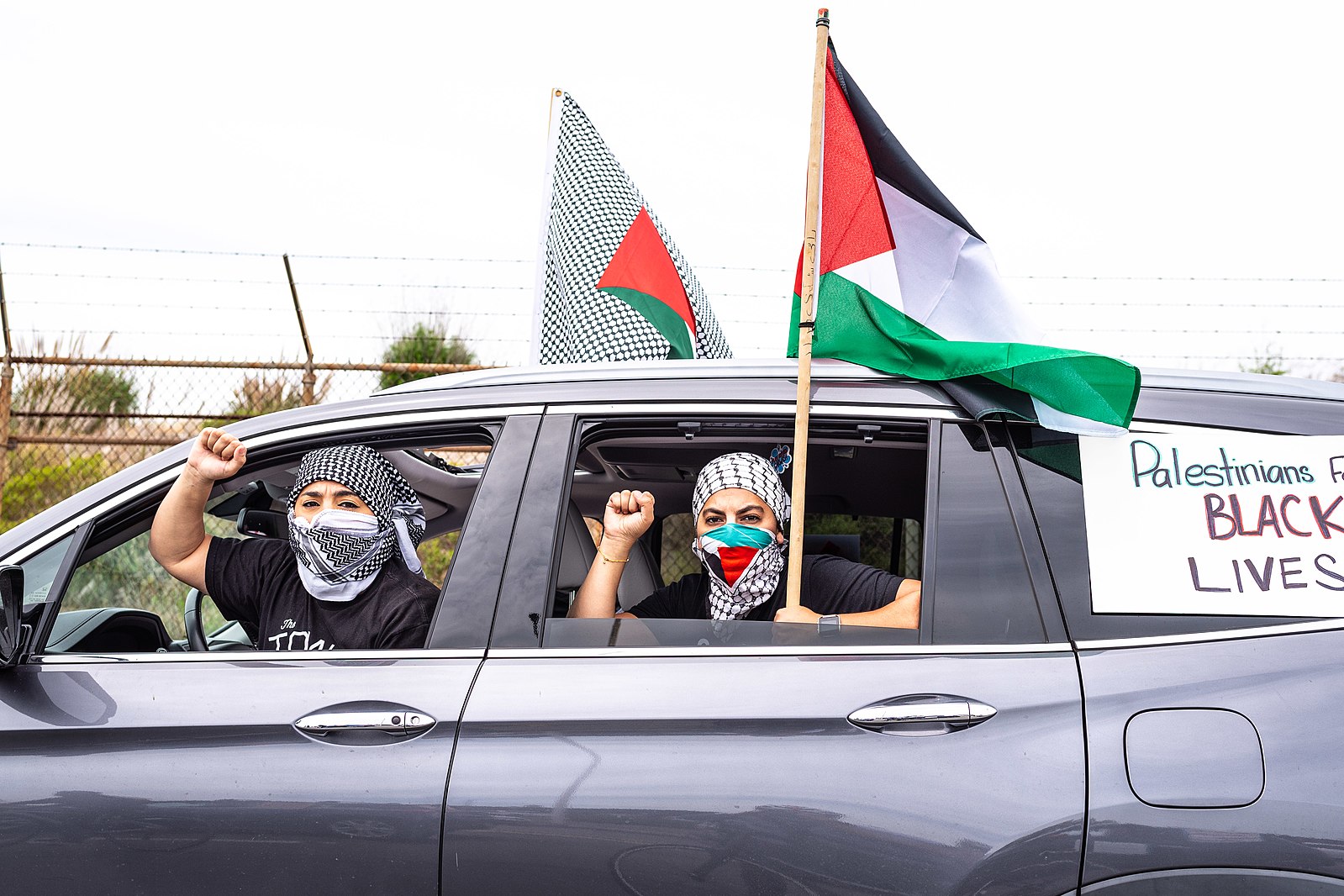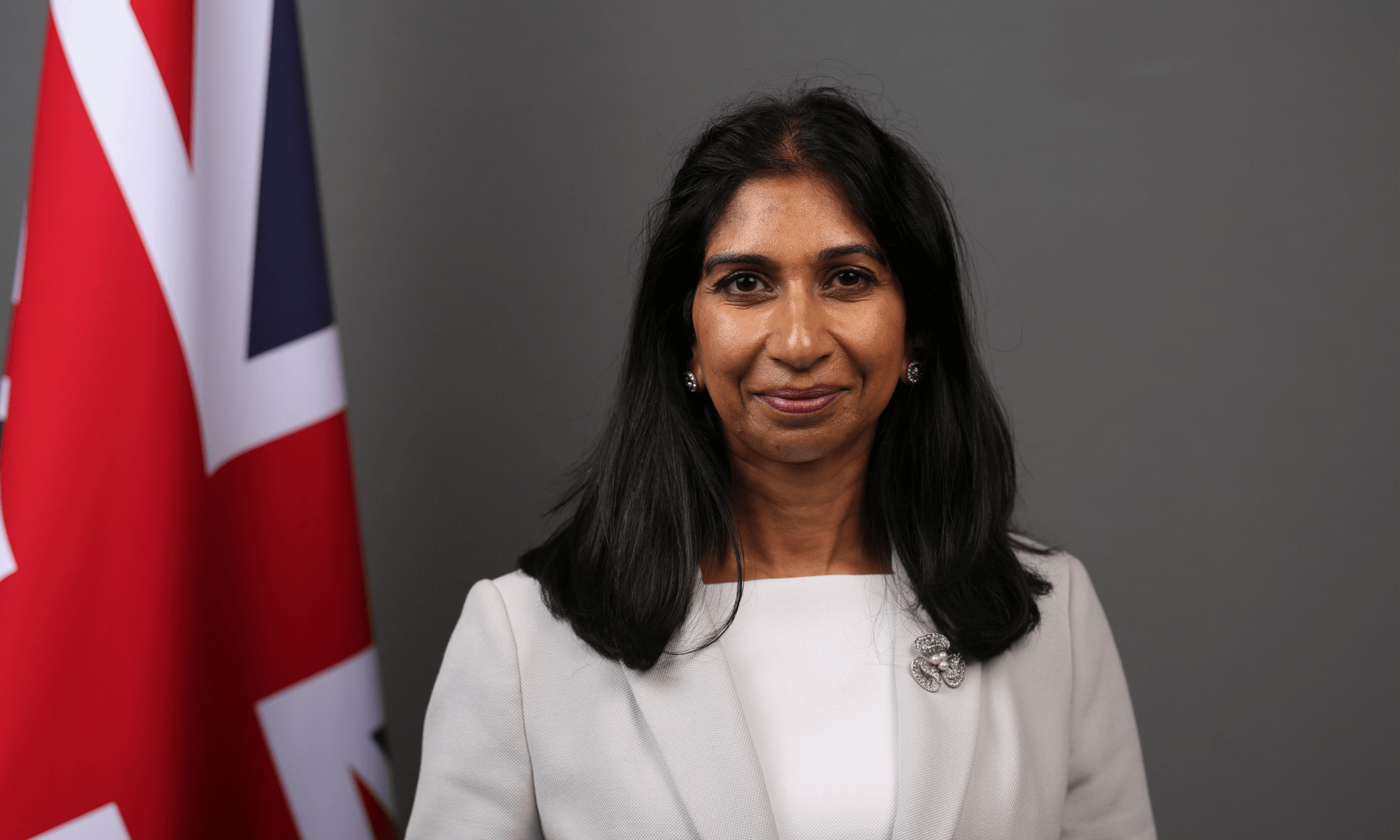
Khadija Said
As Israel designates Palestinian human rights organisations ‘terrorist’, where is the international community?
Two Palestinian human rights workers speak out against Israel’s branding of their workplace as a “terrorist” organisation.
Anonymous
26 Nov 2021
In late October, Israel designated six leading Palestinian civil society and human rights organisations as “terrorist” organisations – including our workplace. We are two Palestinian women who work for Addameer, a non-governmental, civil institution that works to support Palestinian political prisoners held in Israeli and Palestinian prisons. This latest escalation in Israel’s use of its military and legislative powers to maintain control over Palestinians suppresses any form of dissent and severs our right to self-determination.
Two weeks later, the Israeli military expanded the scope of the unfounded designations through a military order, outlawing the work of our organisations in the West Bank as well. This means dangerous consequences such as forcible closure of our offices, along with arbitrary arrests and reprisals against us, the employees. Not only are we at heightened risk of repercussions because we are speaking out, but in recent years we’ve seen several of our colleagues and board members arrested and face travel bans.
Since the ruling of the International Criminal Court (ICC) in February of this year, confirming that it has jurisdiction over crimes committed in occupied Palestinian territory, we have been nervously awaiting Israel’s response. Our work in Palestinian civil society is essential to building an ICC case against Israeli war crimes, but now that it is under threat, we worry that the Israeli regime will continue to take Orwellian measures to avoid accountability.
“Our work in Palestinian civil society is essential to building an ICC case against Israeli war crimes, but now it is under threat”
What we weren’t prepared for, however, was the constant anxiety that comes with knowing we could be prevented from travelling, having our homes and offices raided by the Israeli military, having our residency statuses revoked, or being arbitrarily arrested at any moment. Our sense of violation was made worse when, just two weeks after our organisations were outlawed, we discovered the Israeli-based Pegasus spyware on the phones of several Palestinian human rights defenders, including a lawyer at Addameer. These are measures that have already been taken against our workers and board members in the past, but this latest news signals that Israel intends to escalate the routine use of administrative detention and arbitrary arrests.
Administrative detention is a practice where Israel detains Palestinians without charge or trial, often citing “secret evidence”. This allows Israeli military authorities to detain individuals without proving – or even alleging – any actual individual culpability for activities or dissent against the Israeli occupation. This is part of the Israeli regime’s aim to silence those who defend and express their opposition to apartheid and illegal policies, and especially Palestinian human rights defenders.
There is no justice for Palestinians in Israeli courts. They are an inseparable part of the Israeli apartheid apparatus. Our organisation’s lawyers and the prisoners we work with report a wide range of systematic abuses, including torture, ill-treatment, deliberate medical neglect, and inhumane detention conditions. Palestinians are routinely deprived of the right to a fair trial and many are held in administrative detention.
Over the past few months, five Palestinian prisoners risked their lives on an open hunger strike against their administrative detention. A crucial aspect of our work at Addameer is to document, support and advocate for prisoners and amplify their demands outside of prison. Two of the five remain on hunger strike. The longest, Hisham Abu Hawash, is a father of five, has reached 102 days [as of 26 Nov] and his health is in critical condition.
“A crucial aspect of our work at Addameer is to document, support and advocate for prisoners and amplify their demands outside of prison”
Hunger strikes have since the 1960s been used by Palestinian prisoners to fight for basic rights, and in more recent decades, have been used to challenge the practice of administrative detention. This long history of putting their bodies on the line reveals the lack of trust that Palestinians have in Israeli courts.
But administrative detention is only one facet of how Israel uses its legal and judicial powers to legitimise the repression of Palestinians – just as it is doing now with the six targeted organisations. Since its establishment, the Israeli occupation authorities have issued over 1,800 military orders based on pre-existing British Mandate-era Emergency Regulations. Just as Israel arbitrarily deemed our six human rights organisations as “terrorist” groups, these authoritarian orders have criminalised many forms of political and cultural expression, association, movement, nonviolent protest, and any other acts that might be considered opposing the occupation and its policies.
The threats of arbitrary arrest, unjust imprisonment and retaliation for being a Palestinian human rights defender has another dimension to it as women. Working in Addameer, we have regularly monitored the gendered abuses that Palestinian women face in Israeli detention, and that we are now are at risk of ourselves.
“A loud noise outside our homes at night brings with it the sudden fear of a military raid and arrest”
Our personal and professional lives have been fundamentally transformed. Our families worry about us, despite understanding the importance of our work. A loud noise outside our homes at night brings with it the sudden fear of a military raid and arrest. For one of us, as a Jerusalem ID-holder, every day I pass through the highly militarised checkpoints between work and home, holding my breath that I will not be stopped. For the other, as a dual Palestinian-Canadian citizen, I am afraid of the ways my ability to move and live between my two homes will be impacted, especially when countries like Canada have not taken a stand against Israel’s designation.
Our work has changed too, because the designation puts the political prisoners and their families who we serve at risk. Together with the other five organisations, we defend children, support peasants and farmers, empower women, uplift the poor and marginalized, and document the stories of everyday people facing violence. How can the public access services they need from us if they worry that they may face ramifications for associating with outlawed organisations? How can we guarantee privacy, when Israeli spyware is found on the phones of our colleagues, meaning that personal stories and legal cases of prisoners we serve can be surveilled by hackers.
Israel’s totalitarian behaviour is only possible because of the silence of the international community. It is time for that to end.
We ask that you reject the designation of the six organisations, and also reject the use of administrative detention, torture and the wide range of unjust practices employed by the Israeli judicial system against Palestinians.
Sign this petition organised by the six organisations. Have your civil society organisation issue a public statement of support. Take a stance on social media. Contact your elected representatives, and ask them to condemn and reject Israel’s attempt at silencing human rights defenders. You can find a toolkit full of resources here. Together, we can work for a better future for Palestinians and for all.









